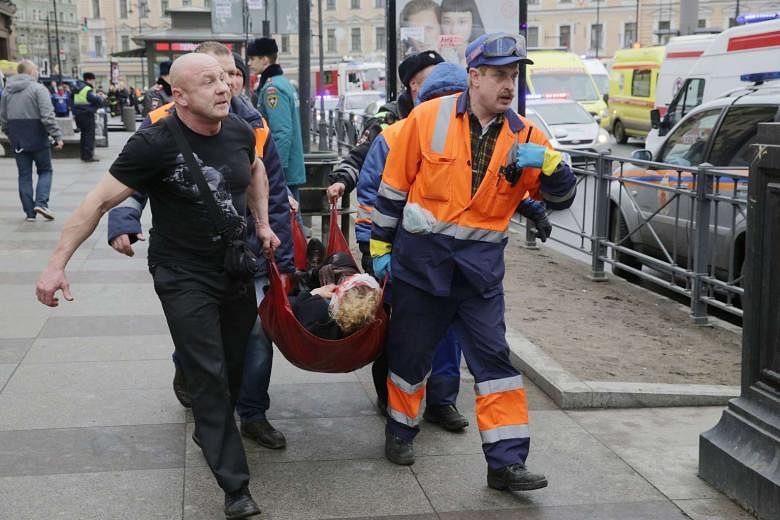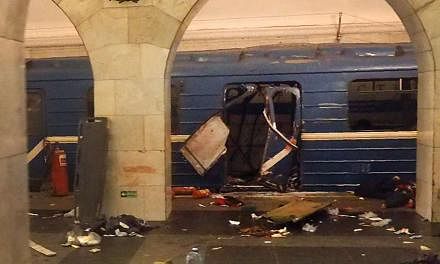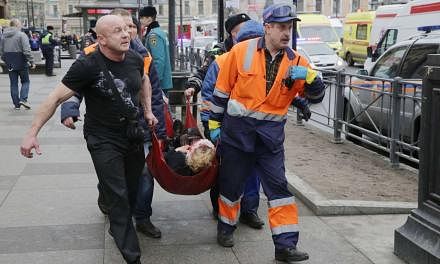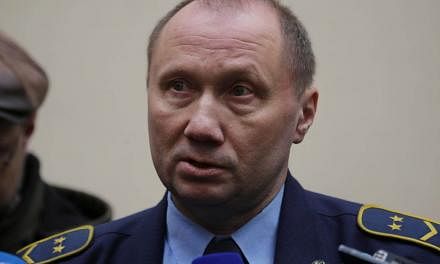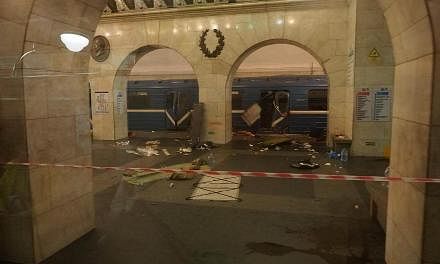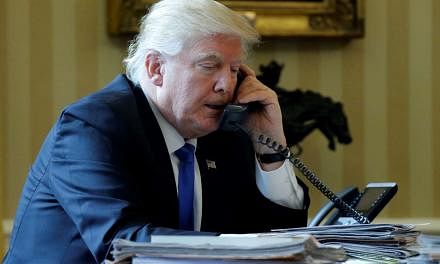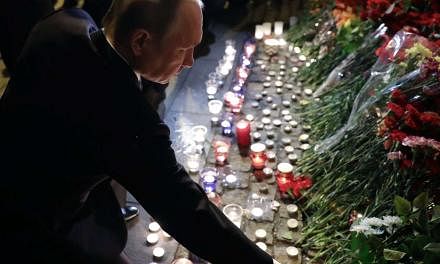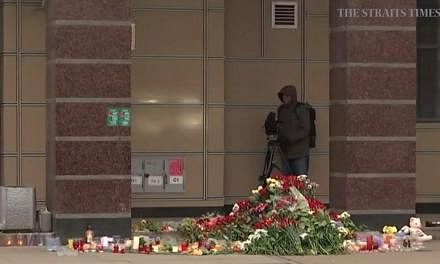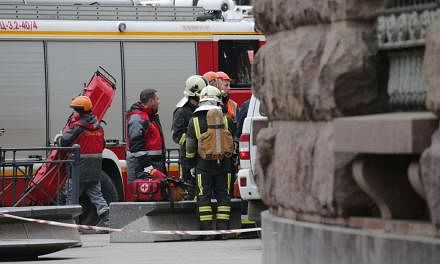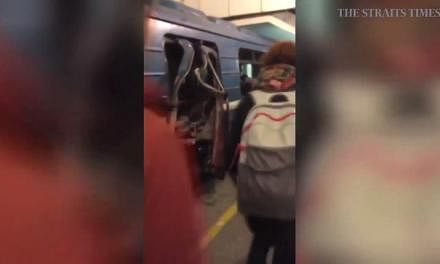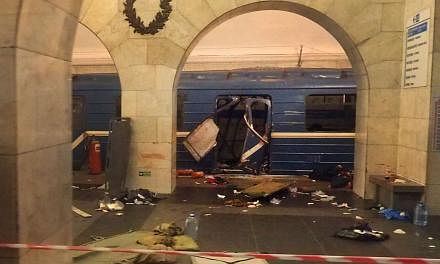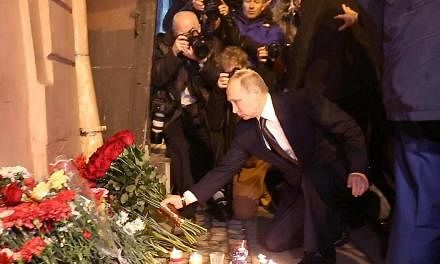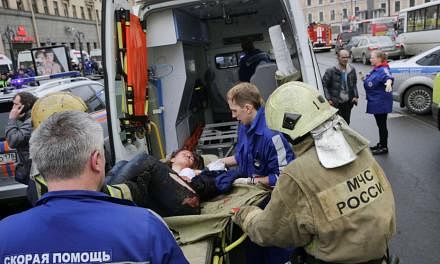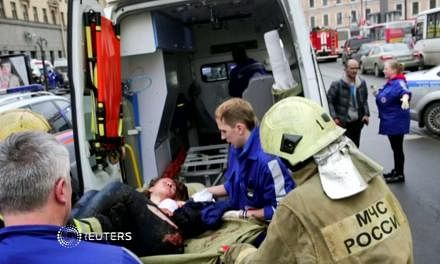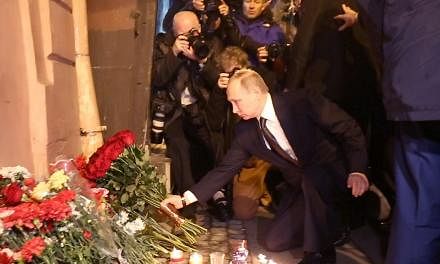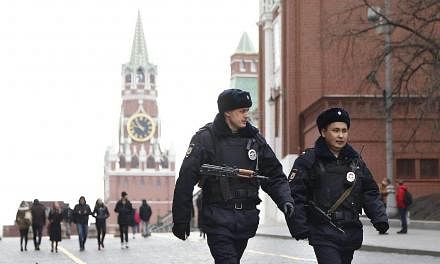ST PETERSBURG (AFP) - Fourteen people have died and dozens more injured in a blast on the St Petersburg metro system on Monday (April 3) that authorities said was an "act of terror" carried out by a suicide bomber.
Here is what we know about the explosion in Russia's second city:
WHAT HAPPENED?
The blast took place at 2.40pm local time on Monday (7.40pm Monday, Singapore time) in the third carriage of an underground train travelling between the Technological Institute and Sennaya Square stations, located in the heart of the city.
Investigators said the train driver, 50-year-old Alexander Kaverin, did not stop between stations, a decision that enabled a quick evacuation and saved lives.
Another bomb fashioned from a fire extinguisher was discovered at the central Vosstaniya Square station, which was promptly closed as experts neutralised the device, according to metro authorities and Russia's anti-terrorist committee.
The official death toll on Tuesday rose to 14 from 11 as three people succumbed to their injuries, while 49 remained hospitalised.
Student Vladimir Zakharchenko, 22, who was a passenger in the carriage when it was hit, said he and his fellow passengers escaped from the wreckage through the train's windows once it arrived at the station platform.
Those hurt include citizens of Belarus, Kazakhstan and Uzbekistan, as well as Russians from 13 different regions, according to the Saint Petersburg authorities.
WHO WAS THE ATTACKER?
Russia's Investigative Committee on Tuesday named the attacker as 22-year-old Akbarjon Djalilov, adding that traces of DNA from Djalilov were also found on a bag with the second explosive device.
Investigators gave no further details on Djalilov, but his name and year of birth coincided with a statement from the Kyrgyz security services which had said earlier Tuesday that he was a naturalised Russian citizen originally from Kyrgyzstan.
Investigators had earlier said that the bomber's remains were found at the scene of the blast, but it was not clear if he is included in the official toll of the attack.
The explosion came after the Islamic State in Iraq and Syria group called for attacks on Russia in retribution for its military intervention in Syria against the militants.
WAS IT TERRORISM?
Russian authorities are investigating the bombing as an "act of terror".
Kremlin spokesman Dmitry Peskov said Tuesday: "The fact that the act of terror was perpetrated in the moment that the head of state was in the city is food for thought."
Russia has not been hit by an attack this deadly since the downing of a plane carrying holidaymakers back to Saint Petersburg from Egypt in October 2015, which was claimed by ISIS. All 224 people onboard were killed.
Russian authorities have claimed to have foiled multiple terror attacks on transportation systems in Moscow, some by suspected militant cells.
But Russian ground transport has been hit by extremists before, including in 2013 in Volgograd, when twin suicide strikes on the city's main train station and a trolleybus killed 34 people, raising alarm over security at the Sochi Winter Olympic Games.
In 2011, 37 people were killed when a blast claimed by Muslim insurgents hit the Moscow metro and the Domodedovo airport.
In an apparently unrelated incident, two traffic policemen were killed overnight in the southern city of Astrakhan when unidentified assailants opened fire on them, the regional governor sai on Tuesday, calling them "radical Islamists."
HOW DID AUTHORITIES REACT?
Emergency vehicles rushed to the scene and authorities immediately blocked off some of the city's main arteries surrounding the transport hub.
The metro network shut down completely for several hours on Monday afternoon but reopened in the evening, while Moscow's network announced it was stepping up security in light of the Saint Petersburg blast.
On Tuesday, flags flew at half-mast in Russia's second city and flowers and candles piled up at an impromptu memorial outside the metro station rocked by the attack, as authorities beefed up security on the busy underground transport system.
President Vladimir Putin issued condolences and later placed flowers at the improvised memorial outside one of the stations.
WHAT WAS THE IMPACT?
Television pictures showed the door of a train carriage blasted out and bloodied bodies strewn across the platform.
Local authorities announced three days of mourning in the city.
With heightened security measures, Russians are certain to face more checks at airports, train stations and in the country's metro systems.
Saint Petersburg, Russia's elegant tsarist capital, is a major tourist destination.
The suicide attack also raised alarm ahead of the 2018 World Cup, with the Saint Petersburg stadium being one of the main venues for the football event Russia hosts next year.
